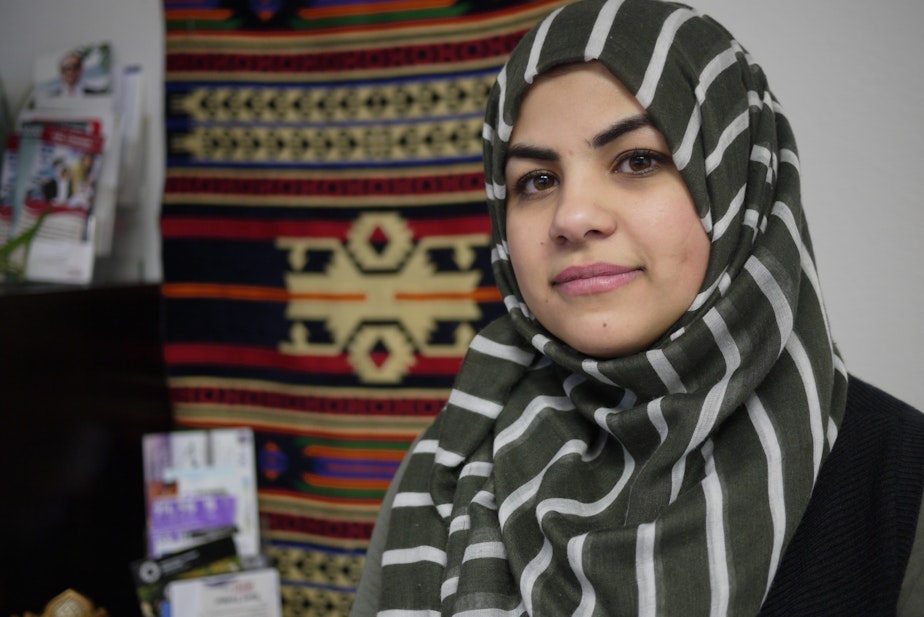Seattle area refugees, Muslims on high alert for Trump policy changes

Every day, newly arrived refugees just show up at Marwa Sadik’s office, at the Iraqi Community Center in Kent. Many are Iraqi, like her. Or from Syria, where she grew up.
One big reason they come is to find help for relatives still stuck overseas, often in refugee camps. They’ve fled their homes because of persecution or war. And cannot go back.
“There’s no way they can do that,” Sadik said. “There’s no way. There isn’t home any more. Iraq or Syria. Both countries are destroyed. There’s no life back there.”
Sadik, like many immigrants and refugees in the Seattle area, is on edge this week as President Donald Trump rolls out his promised crackdown on immigration. A draft of new restrictions on refugees and Muslim immigrants has many braced for the worst.
Sadik followed all the campaign rhetoric, about a possible ban on Muslim immigrants. Or suspension of the refugee program. But seeing those plans set down on White House paper this week, set off a deep dread.
“Feels more like back home where the president is in charge of everything and they make all the law,” Sadik said.
A leaked draft of an executive order from Trump calls for the U.S. to suspend entry of all refugees for at least 120 days and place a temporary ban on immigration from several majority-Muslim countries — Iran, Iraq, Libya, Somalia, Sudan, Syria, and Yemen.
The draft also outlines major cuts in the U.S. refugee resettlement program, to 50,000 admissions per year from a current level of 110,000.
Trump has said temporary restrictions are needed so the government can review security procedures and ensure potential terrorists are weeded out.
With the executive order, Sadik said she’s worried refugee service providers like her will lose funding, and refugees will lose benefits that help them get a foothold on a new life here.
An Iraqi co-worker at Sadik's office, Ayat Murad, said the past year has been upsetting for Muslims in America but "this week is the first time I've felt scared."
Last fiscal year, nearly 4,000 refugees were resettled in Washington state. Among them, roughly one in three people were from majority-Muslim countries like Iraq, Iran and Somalia.
Sadik has seen similar restrictions on refugees and Muslims before, after the attacks of Sept. 11. We fought then, she said. And we’ll fight again.
"I know a lot of people who were originally saying we're going to stay we're going to fight this - we're going to trust that the checks and balances of government are going to work,” said Willow Wilson, a comic book writer and novelist in Seattle.
Wilson is Muslim, with family in the Middle East. She said that seeing the anticipated details of Trump's executive order has some people questioning their future here.
“I know people who are thinking, ‘we might have to flee," Wilson said. "I mean this is becoming a real concern."

